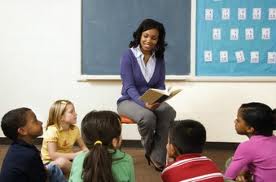Reading games for preschool kids
Here are some reading games to play with your preschool kids: I spy: play I-spy to introduce phonics, ensuring that you use the letter sound and not the name, for example, ‘ah’ (a), ‘buh’ (b), ‘cuh’ (c), rather than ‘Ay’ (A) ‘Bee’(B), ‘See’(C). The game goes like this: “I spy with my little eye, something […]
Fostering a love of reading in children: Ages 6 to 8 years

Fostering a love of reading in children: Ages 6 to 8 years At this age, your little baby has grown and changed in leaps and bounds and her appetite for knowledge is almost insatiable. She is able to understand feelings and relate them to other people (no longer being as self-centred as she was before […]
Tips on how to develop a love of reading in children: Ages 3 to 5 years
Developing a love of reading in children: Ages 3 to 5 years At this age, children are beginning to develop an appreciation of different letters, numbers, symbols and what they represent. They have also nearly mastered an understanding of different seasons, colours and shapes, as well as the basic concept of time, in terms of […]
Tips on how to develop a love of reading in children: Birth to 3 years

Birth to 3 years A child’s earliest learning comes to him before the age of 5 years in the environments he is exposed to, which are most often the home and perhaps a day-care centre or pre-school. Obviously then, the more you expose your child to in this period, the more extensive his learning will […]
More strategies to use when reading with your child at home

Here are some other strategies that you can make use of when reading with your child at home: Pre-reading strategies – look at the title and available pictures with your child and discuss what you think the story may be about. Question, question, question: Stop reading at regular intervals and ask your child questions about […]
Strategies to use when reading with your child at home

There are several useful strategies that parents can make use of when reading with their children at home, as we need to bear in mind that children are individuals and one method is not necessarily going to work for every child. Paired reading becomes useful, as instead of listening to the child read, the parent […]
Reading methods taught at school

Schools use different methods to teach reading. For example: The phonics method; this is the term used for teaching reading wherein individual letters of the alphabet are matched with the specific sounds of the languages pronunciation. So ‘cat’ is read as ‘c-a-t’ and the child then runs the sounds together to say ‘cat’. This method […]
Kids learing – What children need in order to thrive at school

To thrive means to prosper, flourish and grow vigorously, in other words, it means to develop and grow appropriately, which is necessary in order for a child to succeed at school. Isn’t this what most parents want? But how come we don’t all get this? Basically, schools are set up to get information across in a […]
Tips for developing your child’s emotional intelligence

Tips for developing your child’s emotional intelligence (and developing these characteristics yourself); ☺ Raise your children understanding that while all emotions are acceptable, not all behaviours are. ☺ Help your children to find appropriate and healthy ways of dealing with all of their emotions, especially the negative ones (this does not allow for them to […]
What is emotional intelligence?
It seems that every parenting magazine you pick up today is filled with pamphlets advertising talks and workshops for parents on the topic of emotional intelligence. What on earth is this? How important is it? And more significantly, what can we, as parents, do at home to promote emotional intelligence in our children and ourselves? Dr. […]

